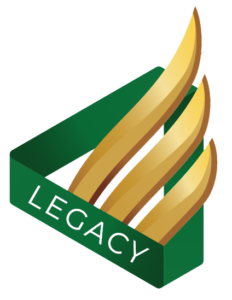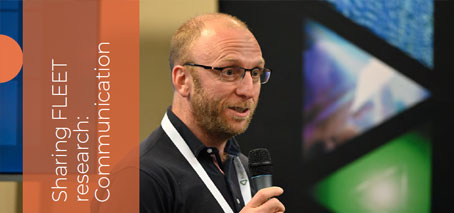
This is an extract from the 2022 FLEET annual report [read the full report online] See previous section (Outreach) / see next (Education)
FLEET’s communication functions include:
- Internal communications to maintain a cohesive Centre
- Informing the Australian public of the benefits being gained from research funded by the ARC
- Supporting FLEET’s outreach functions to build a more science-aware public
- Appropriately communicating FLEET’s research outputs to different audiences, from the general public to the research community and potential collaborators, industry partners and end users
- Building the transferable communication skills of FLEET members.
Centres of Excellence have the potential to make lasting, big-picture changes in Australian science policy. In 2022 FLEET put this into practice, making formal submissions to government policy on Australia’s critical technologies list and Australia’s quantum strategy.
In addition, seven Centre members were introduced to policymakers and policymaking via Science and Technology Australia’s (STA’s) Science Meets Parliament event, including meetings with individual MPs.
In early 2023, FLEET will run training for senior and early-career investigators to develop skills in having more-effective input into science policy.
 FLEET will:
FLEET will:
- Improve public awareness of quantum science, electronics and sustainable computing
- Establish strong, lasting links between Australian and international science communities
- Develop the communication skills of Australia’s next generation of science leaders
- Improve public perception of diversity in science.
COMMUNICATIONS SELF-SUFFICIENCY
 While our members are in a Centre of Excellence, they have access to a communications coordinator who can help them share their research. But this will probably not be the case for most of a scientist’s career. Therefore individuals should develop sufficient skills in communicating their research to be able to do this for themselves, without the aid of a full-time comms professional.
While our members are in a Centre of Excellence, they have access to a communications coordinator who can help them share their research. But this will probably not be the case for most of a scientist’s career. Therefore individuals should develop sufficient skills in communicating their research to be able to do this for themselves, without the aid of a full-time comms professional.
At FLEET, we are striving to develop the communications skills of our members, giving them the skills to share their research through several channels, including effectively leveraging university communications teams, online scientific platforms and social media.
Work towards this goal in 2022 included ‘do it yourself’ communications training for ECRs by Centre communications coordinator Errol Hunt aimed at encouraging members to write up and publicise their own scientific papers online on high-traffic platforms.
2022 communications HIGHLIGHTS
- Returning to large face-to-face Centre events, including the ICPS Satellite Symposium and annual workshop in Wollongong and Strategic Meeting in December
- Running the first iteration of ‘do it yourself’ communications training, helping FLEET ECRs become self-sufficient in terms of publicising their research
- Preparing Centre policy submissions on Australian’s critical technologies and Australia’s quantum strategy
- Supporting focus on research translation (see FLEET Translation Program)
- Publishing 26 non-peer-reviewed articles, improving members’ writing skills.
 INTERNAL COMMUNICATION
INTERNAL COMMUNICATION
FLEET’s internal communications function to:
- Foster Centre cohesiveness, both between participating nodes and between different research areas
- Improve understanding (e.g. between two quite diverse research fields: quantum information theory and nanodevice fabrication)
- Encourage collaborations between nodes and across research areas
- Ensure members know they are supported by the Centre
- Disseminate important information to members in a timely fashion
- Support other Centre strategic priorities (e.g. in training, outreach and equity).
In addition to the intranet, annual reports and the regular newsletter, all new members receive welcome emails outlining necessary Centre functions, logins and tools. Additionally, all-Centre meetings are used to keep members up to date with strategic goals, Centre processes and support mechanisms.
The Centre’s monthly newsletter reaches all 250 members and partners, with an edited version going to another 220 external affiliates, followers and stakeholders. The newsletter achieves an open rate of approximately 50% among members, with 79% of members saying they find it useful.
Balancing the need to maintain Centre cohesion with some members’ concerns about covid and other members’ family commitments, FLEET’s return to in-person meetings in 2022 has been accompanied by ongoing parallel support for online attendees.




